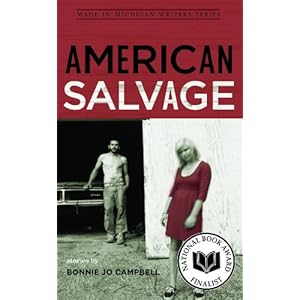Nathan Bransford compares novels that sacrifice story in the interest of verisimilitude to undercooked meals.
I don't know if I entirely agree with the undercooking metaphor, but his underlying point is close to absolute truth for just about all writers.
Life is a bunch of stuff that happens; most of it is confusing and some of it is arbitrary. Narrative is a series of events that occur through a perceivable chain of cause and effect. Important things must be introduced, and extraneous things must be omitted. Narrative is, to some extent, an artificial construct, whether it's employed to recount true events or fictional ones. But it's ironclad and non-negotiable.
If you are morally or aesthetically opposed to the idea of a story, I sympathize with you. I kind of feel that way myself. But, if you want to write fiction for publication, I think you have to reconcile yourself to the conventions of Western storytelling.
If your theme or subject matter is the arbitrary and unexplainable, and your novel is therefore a frontal attack on the central conceit of the story, you've got your work cut out for you. Literary agents who enjoy eating food and acquiring editors who enjoy having jobs may admire your devotion to your ideals and your experimental aspirations. But they'll probably admire you from a safe distance.
It helps, I guess, if you are an extraordinary talent; the kind of person who can describe grass in a way that makes readers break down weeping. And even then, the best-case scenario for the amazing talents who are steadfast in their refusal to bend to commercial norms is that they end up being one of the National Book Award nominees that only 1,500 people read.


No comments:
Post a Comment